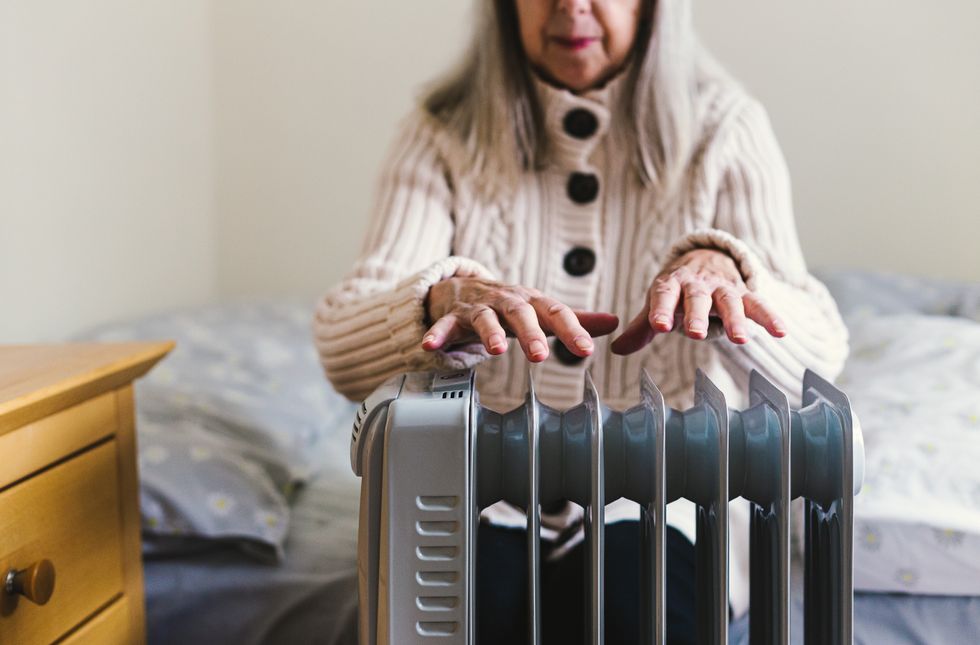Pensioners are losing the Winter Fuel Payment while the state pension continues to rise
GETTY
The state pension triple lock will come into effect from April 2025 but will it be enough as the Winter Fuel Payment is axed for millions
Don't Miss
Most Read
Trending on GB News
State pensioners are guaranteed to be awarded a payment rate hike next year thanks to the triple lock but a former pensions minister is warning that thousand will still likely be "worse off".
Yesterday, the Government confirmed the rate at which state pensions will rise by next April and was successful in passing a motion through the House of Commons to means-test the Winter Fuel Payment.
Under the triple lock, the retirement benefit's rate is increased by either the rate of consumer price index (CPI) inflation, average earnings or 2.5 per cent; whichever is higher.
Using this metric, state pension payments will go up by four per cent in April 2025 in line with average wages between May to July, according to figures from the Office for National Statistics (ONS).
As it stands, the new state pension is sitting at £11,502.40 per year but this will jump to £11,962 annually via the triple lock, translating to an increase of £460 a year for pensioners.
Despite this sizable boost, next year's rate hike falls short of the 8.5 per cent payment rate rise seen in April 2024 and is may not be enough to offset the Winter Fuel Allowance being means-tested.
Do you have a money story you’d like to share? Get in touch by emailing money@gbnews.uk.
 Pension Credit is a benefit reserved for lower income pensioners GETTY
Pension Credit is a benefit reserved for lower income pensioners GETTYIn July, Chancellor Rachel Reeves confirmed plans to link the benefit's eligibility to Pension Credit which means 10 million pensioners are at risk of losing up to £300 in energy bill support.
Administered by the Department for Work and Pensions (DWP), Pension Credit is a benefit reserved for those of state pension age who live in a low income household.
Concerns have been raised that older Britons could be plunged into fuel poverty and recent analysis from Quilter found that over 270,000 Pension Credit applications have been refused in the last five years.
Analysts are noting that, while a triple lock boost is welcome to pension incomes, it may not be enough to help households struggling to cope with the cost of living following the winter months.
Steve Webb, a partner at pension consultants LCP who served as a member of the Prime Minister David Cameron's coalition Government, shared his concerns for pensioners
The former pensions minister explained: “Part of next April’s increase is simply to keep pace with rising prices.
"Based on the current inflation figure of 2.2 per cent, the new state pension would need to rise by just over £250 simply for pensioners to stand still.
"Whilst an above-inflation increase of £460 will be welcomed, only the further £210 represents a real increase.
"And this is before allowing for the income tax which most pensioners will pay on their state pension rise. Those who lose £200 or £300 in Winter Fuel Payments will therefore still be worse off in real terms next April.”
"And this is before allowing for the income tax which most pensioners will pay on their state pension rise.
"Those who lose £200 or £300 in Winter Fuel Payments will therefore still be worse off in real terms next April.”
LATEST DEVELOPMENTS:

The state pension will increase by four per cent in line with the triple lock from April 2025
GETTYState pensions will rise from April 2025 while the Winter Fuel Payment means-testing is set to come into effect from this year in a blow to older households ahead of the winter months.
Speaking to broadcasters, Reeves said: "We faced a situation when I became Chancellor that there was a £22billion black hole in the public finances this year.
“That meant we had to make difficult decisions, tough decisions, to get a grip of those public finances so that we could bring stability back to the economy.
“These weren’t decisions that I wanted to make. They weren’t decisions that I expected to make, but in the circumstances that we faced it was absolutely right to make sure that our public finances were on a firmer footing."








